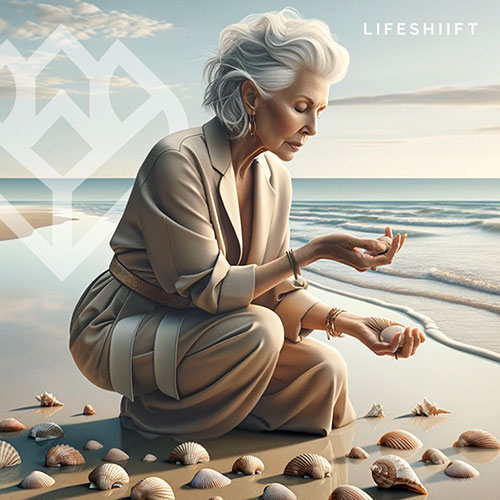In a world that often equates solitude with loneliness, it’s crucial to understand the stark difference between the two.
While loneliness can feel like a poverty of the self, solitude is, in fact, the richness of self. Learning to be alone is not just about filling the void of company; it’s about embracing the freedom and empowerment that comes with being comfortable in your own company.
Let’s dive into the art of being alone and explore why it’s something to be celebrated rather than feared.
Embracing Solitude:
When you’re alone, it’s an opportunity to let your mind wander freely. Without the distractions of others, you can delve into your thoughts, dreams, and desires without inhibition. Solitude allows for introspection and self-discovery, helping you gain a deeper understanding of who you are and what you truly want out of life.
 Spending time in nature is another enriching experience when alone. Whether it’s a leisurely stroll through the woods or a quiet moment by a tranquil lake, nature has a way of calming the mind and rejuvenating the soul. In solitude, you can fully immerse yourself in the beauty of the natural world, finding solace and inspiration in its wonders.
Spending time in nature is another enriching experience when alone. Whether it’s a leisurely stroll through the woods or a quiet moment by a tranquil lake, nature has a way of calming the mind and rejuvenating the soul. In solitude, you can fully immerse yourself in the beauty of the natural world, finding solace and inspiration in its wonders.
Do you remember as a child when you had daydreams that took your imagination upward or when you would find something amazingly interesting in nature like an ant colony working hard or a beautiful butterfly dancing through the garden plants? Can you find that childlike wonder that you had then?
Perks of Being Alone:
One of the greatest perks of being alone is the ability to take up space – both physically and emotionally. Without the presence of others, you have the freedom to spread out, both figuratively and literally. You can dance like nobody’s watching, allowing your body to move freely and expressively without fear of judgment or scrutiny.
Gratitude also flourishes in solitude. When you’re alone, you have the opportunity to reflect on the blessings in your life and cultivate a sense of appreciation for the things that truly matter. From the warmth of the sun on your face to the simple pleasures of a good book, solitude allows you to savor life’s little joys without distraction.
Moreover, being alone gives you a chance to reevaluate your own harsh self-judgment or criticism. You can be kinder to yourself, offering forgiveness for past mistakes and embracing self-compassion. In solitude, you have the space to practice self-love and acceptance, nurturing a positive relationship with yourself that forms the foundation of personal growth and fulfillment.
And let’s not forget the freedom to make plans for the future. When you’re alone, you can dream big, like that child in you, and set goals without the constraints or expectations of others. Whether it’s pursuing a new career path, traveling to exotic destinations, or simply finding more time for self-care, solitude empowers you to envision and pursue the life you desire on your own terms.
Conclusion:
In a world that often values constant connection and external validation, learning to be alone is a radical act of self-love and empowerment. It’s about embracing the richness of solitude and finding contentment in your own company. So, the next time you find yourself alone, relish in the freedom it brings. Let your mind wander, dance like nobody’s watching, and cultivate gratitude for the abundance of life’s blessings. Remember, being alone is not a sign of weakness – it’s a testament to your strength and resilience as an individual.







